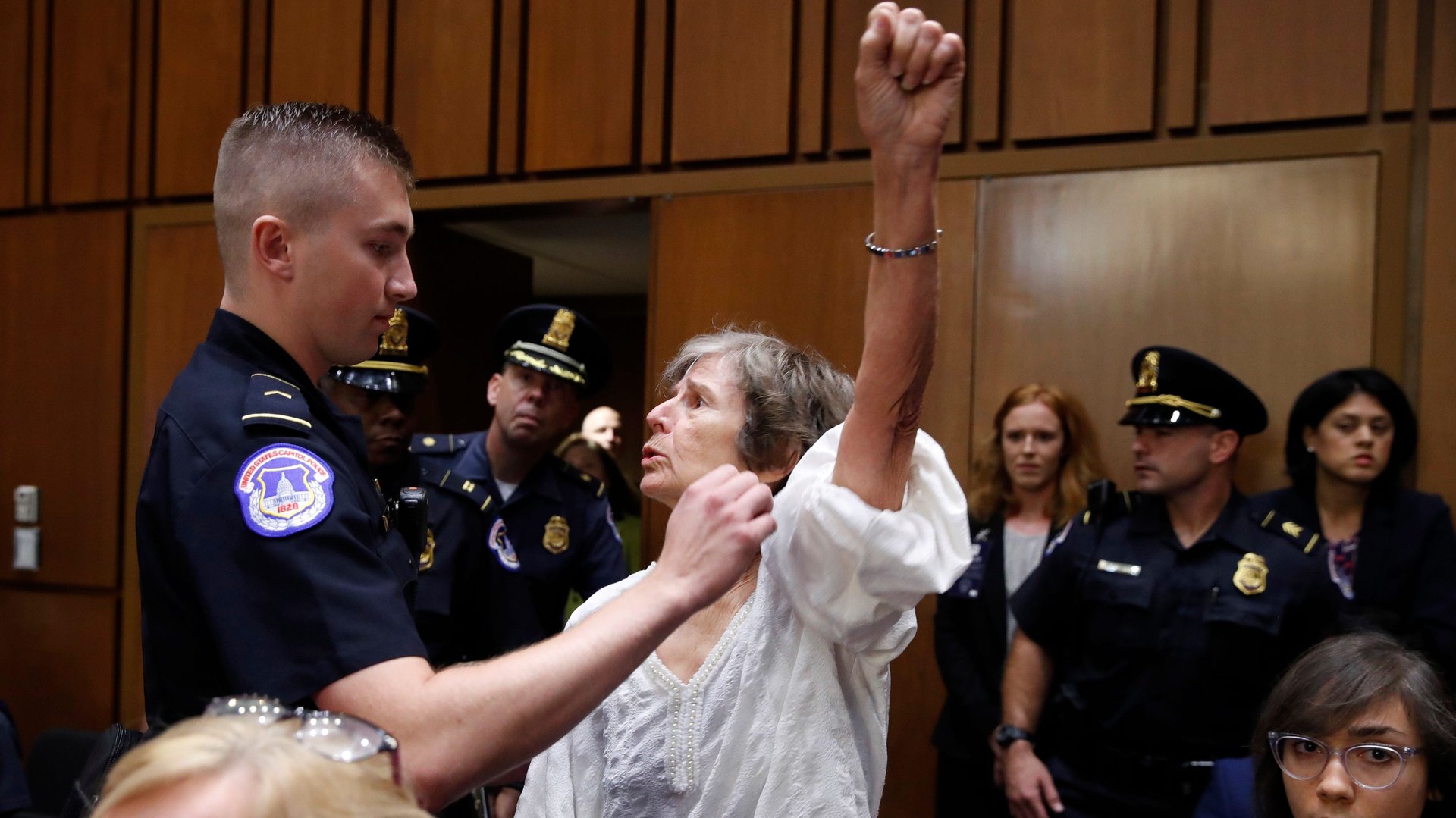The rolling protests during Kavanaugh’s Senate hearing were carefully organized and will continue all week
About 30 people, most of them women, were arrested during Brett Kavanaugh’s Senate confirmation on Tuesday morning after shouting slogans and criticism at ruffled senators from the public gallery.


About 30 people, most of them women, were arrested during Brett Kavanaugh’s Senate confirmation on Tuesday morning after shouting slogans and criticism at ruffled senators from the public gallery.
“Kavanaugh can’t be trusted,” yelled one protester. “Be a hero” and cancel Kavanaugh’s hearing, shouted another.
The protests were carefully planned, and this morning’s disruptions are just the first wave, Rachel O’Leary Carmona, the chief operating officer of the Women’s March, told Quartz.
Kavanaugh’s hearing is shaping up as one of the most tumultuous in modern history, as women’s rights groups, pro-democracy groups, and disability rights groups band together to try to stop his confirmation. They’re concerned a lifetime appointment for the conservative judge will spur the top US court to strip away reproductive rights, dismantle the Affordable Care Act, and prevent president Donald Trump from being held accountable for any misdeeds.
Hundreds of activists, some from as far away as Alaska, are heading to the capital to protest Kavanaugh’s nomination this week, O’Leary Carmona said. Daily hearings are scheduled for the remainder of the week.
“One of the most important thing that we can do is let the country know what the stakes are here,” she said. “This is a lifetime appointment, and could be a life sentence for women.” Protesters are coming to “look these legislators in the eye and tell them our demands—that this hearing not continue while we have a president who is an un-indicted co-conspirator to a crime,” she said.
Today’s protesters included actress Piper Perabo and Women’s March founder Linda Sarsour.
Televised congressional hearings like Kavanaugh’s are open to the public, making them potentially a powerful stage for activists—but one they’ve rarely used in the past. The Senate gives out a limited number of public passes on a first-come-first-serve basis. Individuals are admitted for a limited time in groups of 48.
Protesters started camping out in the Hart Senate Office building, where the hearing was held, last night at about 10pm, O’Leary Carmona said, and planned out who will speak out and when. Most of the first group of 48 members of the public were protesters, and the gallery was nearly empty after their arrests.
The protestors were mostly female, making a sharp contrast to the mostly elderly, male members of the senate judiciary committee. Orrin Hatch, the Republican from Utah, was so put-off by the noise that he faltered and stopped his opening statement for a moment, before referring to “insolence” and “loud mouths.”
Ben Sasse, the Republican from Nevada, referred to the disruptions as “hysteria,” and said women had been holding “screaming protests saying women are going to die” for thirty years.
“It’s not surprising to see unprecedented protests,” said Erica Sackin, a spokeswoman for the Planned Parenthood Action Fund. “We are at an unprecedented moment and our fundamental rights are at stake … People are fed up with the hiding, the withholding of information and the politicking to strip people of their health care and constitutional rights.”